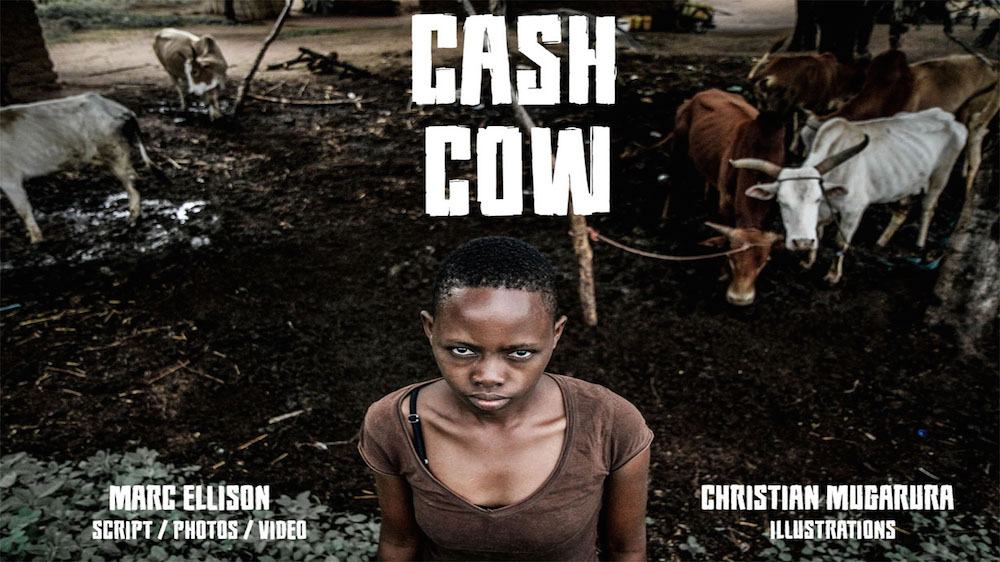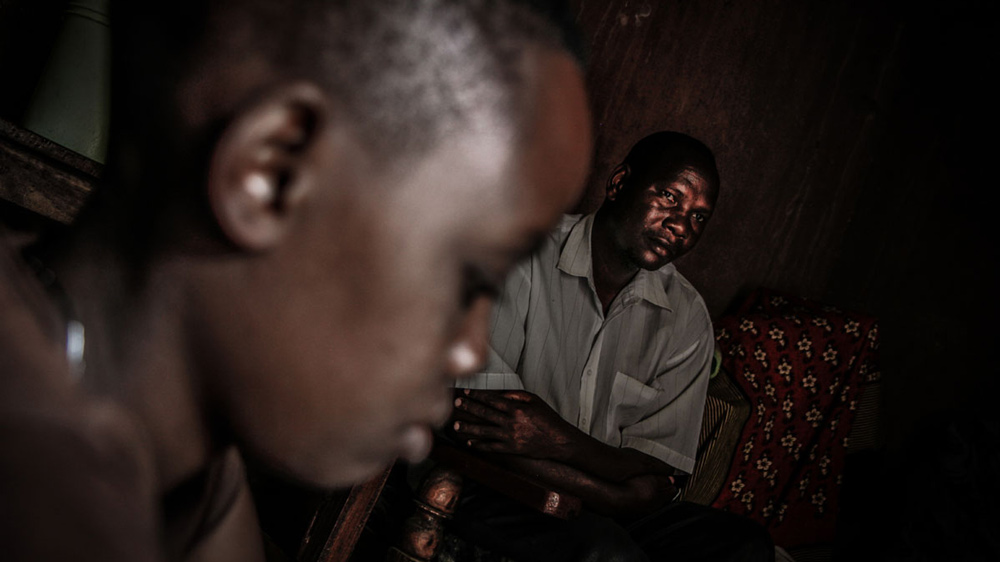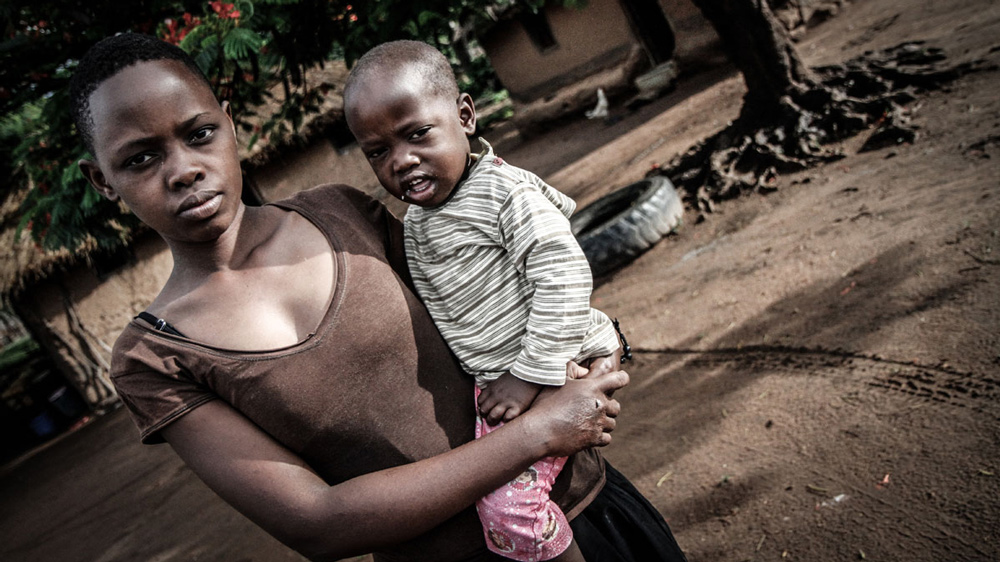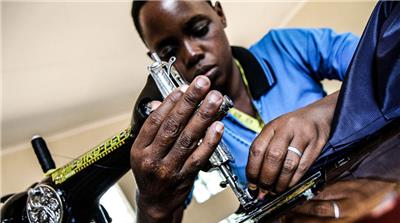Tales of a child bride: My father sold me for 12 cows
by Marc Ellison, July 13, 2016.

When she was 12, Grace was abducted and then raped and beaten every day for 11 months.
abduction, rape and forced marriage of girls in northern Tanzania that a
single word is used to encapsulate them all: kupura. It is a word used
by people from the Sukuma tribe to describe the snatching of girls in
broad daylight as they walk to school; a three-syllabled euphemism that
downplays their long-term physical and sexual abuse.
of kupura is validated by the oft-recited motto of Sukuma men: alcohol,
meat and vagina.
says Revocatus Itendelebanya. “These are the three things they feel
entitled to as men.”
says this sense of entitlement, in what is a perennially patriarchal
society, also explains why passers-by don’t intervene when they witness
an abduction.
start asking people where she lives, and what her routine is,” explains
Itendelebanya.
her near the borehole – or whatever he thinks is the best place to get
that girl – and then grab her.”
is so prevalent in the region that when a girl disappears, her parents
will suspect what has happened. But rather than calling the police, they
will seek the man out not to rescue their child, but to negotiate the
dowry – or bride price – in cattle.
investment for poor, rural households – cash cows that can boost a
family’s financial position at the expense of a girl’s schooling and
wellbeing.
Itendelebanya says parents will take their daughters to a witch-doctor
if they are not attracting any suitors.
nicks into the girl’s chest and hands with a razor to not only help
cleanse her of her bad luck, but to make her more attractive to older
men.
them,” she says, pointing at the cows grazing at the rear of her
family’s compound. For Grace they are a daily reminder of how she was
treated like cattle, a commodity to be bought and sold.
 |
| Grace was abducted after she refused to marry the older man to whom her father sold her [Marc Ellison/Al Jazeera] |
daughter but, despite daily beatings with sticks and her father’s belt,
she still refused to marry the older man.
for girls at 15 with parental consent – but a girl of 14 could wed
where judicial approval was given.
child marriage, it did define a child as a person under the age of 18,
stating that a parent should “protect the child from neglect,
discrimination, violence, abuse, exposure to physical and moral hazards
and oppression”.
obfuscated by the Local Customary Law of 1963, which allowed Tanzania’s
many ethnic groups to adhere to their customs and traditions.
constitutional review process to address these conflicting laws, but
last year’s presidential election campaign, in addition to a lack of
consensus in community surveys, had served to stall any political
momentum on the issue.
1998, and yet a 2010 government survey found that in remote parts of
the Mara region, more than 40 percent of girls and women had been cut.
the countries with the highest rates of child marriage, with four out of
10 girls being married before their 18th birthdays, it seems to be a
problem that is not going away.
girls like Grace – some of them as young as nine – are forced into child
marriages.
concealed by the remoteness of many rural communities, as well as
widespread reports of corrupt police and court officials burying cases
in return for bribes by family members.
cases of police being paid to ignore some early marriages in villages,
to lose crucial evidence, and to even help forge the incriminating birth
certificates of child brides.
from it,” claims Itendelebanya. “And police see NGOs like Agape as
preventing the flow of money into their pockets.”
gender desk at the Shinyanga district police station, dismisses any
claims of wrongdoing by her staff.
every police station have such a specialist unit, with trained personnel
who could handle cases of gender-based violence and child abuse across
the country.
mostly done in private,” she says. “But I also can’t say that 100
percent of all cases are delayed because of corruption.”
victim may accept financial compensation from the perpetrator’s family,
which would lead to the adjournment of a case.”
 |
| After 11 months of committing daily rapes and beatings, Grace’s husband died in a motorbike accident [Marc Ellison/Al Jazeera] |
cows by the husband’s family to derail the case,” she says.
life is hard for these people, they often take the money. The police may think the family is cooperating with them, but then
when the time comes to testify they tell us the girl is sick, in another
village, or even dead.”
Misungwi stresses that her officers were hired because of their high
moral standing, and then provided with the necessary training.
“And we provide people with a confidential environment where they can
have a one-on-one conversation in private rooms where others cannot
listen,” she adds.
But what the superintendent says, and what actually happens in her absence, appear to be two different things.
Before Misungwi arrives at the station, a young mother sits in the
main office as she tells a police officer about the regular sexual
assaults she endures at the hands of her husband – the private rooms sit
empty.
The officer takes no notes, his attention not on the mother, but on
the Nigerian soap opera blasting from the television set in the corner
of the room.
Other staff members sit nearby, staring into space, periodically checking their phones for text messages.
Meanwhile incidents related to child marriage have doubled over the past two years.
When staff compile a list of these they do not use the Swahili terms,
instead opting for the English equivalents, to mitigate the shocking
nature of the crimes.
Kubaka is replaced with rape, kulawiti is replaced with sodomy, kumpa mimba mwanafunzi is replaced with child pregnancy.
And Misungwi says it is the lack of police resources, rather than
corruption, that has contributed to the prevalence of child marriage in
the region.
like Home Affairs, they don’t have a separate pot of money for the
police gender desk,” she says.
station’s three vehicles to reach remote villages where child marriages
have been reported to them – but these are often already being used for
routine police business.
and can’t afford to come to town to do a follow-up interview,” says
Misungwi. “As a result we often can’t reach a conclusion on a case.”
Paulo Kuyi, who is fighting the ground war against child marriage in the
nearby town of Muchambi.
warning system for the NGO Agape, which in turn tips off the local
police force.
cows in a family’s compound that triggered alarm bells for Kuyi. And he
knew the poor family had a 13-year-old daughter, Agnes Dotto.
before the wedding,” Kuyi explains. “The family now has cows coming into
their clan and they want to celebrate and invite other villagers.”
police station in Maganzo, where he should have remained until his case
went to trial.
 |
| Grace is now taking vocational classes [Marc Ellison/Al Jazeera] |
arrange the marriage,” he claims. “It was because of that complicity
they paid a police officer to release the perpetrator.”
euphemistically calls them – that child marriage cases take on their way
to the courts.
in our investigations,” he says. “The Tanzanian government provides no
specific budget for gender-desk teams, which means we often rely on NGOs
for assistance.”
the unit has no dedicated car pool of its own, and their office is
bereft of furniture or computer equipment and has a leaking roof, which
in the past has led to important legal documents being damaged.
given this role as a punishment,” says Sumuni. “So this in turn affects
their motivation to chase down reports of child marriage and related
cases of abuse.”
it is common knowledge that Kuyi is the one reporting cases of child
marriage to the police.
marrying off their daughters can generate, villagers have threatened to
lock the activist in his hut and burn it down.
payment means Kuyi can no longer be visually tipped off about an
impending marriage.
cases to the police,” Kuyi says. “They’ve been intimidated by death
threats, or demoralised when they see only a few cases actually go to
court.”
part of a year was dead – but she now has a child to take care of, and
no income.
Each year, the organisation provides dozens of girls with an
opportunity to learn a trade so that they can become breadwinners in
their own right.
tailoring classes, but others want to take the courses in welding and
electrical engineering – professions that challenge the patriarchal and gendered stereotypes so ingrained in Tanzania’s communities.
“It was Sukuma tradition that forced me to have Grace married when
she finished primary school,” says Kurwa. “When she came back I
apologised, and I hope now that we can slowly become father and daughter
again.
“I cannot repeat this mistake because when Grace came back, she told us what had happened to her.”
But Grace has her doubts, and fears for her four-year-old sister Birha.
“My father has only six of the cows left from my dowry,” she says. “He sold the others to build a second home.”
“What do you think he will do when the others have gone, and he is poor again?”
This research was conducted with the support
of the ‘International Development Reporting Fellowship’
(http://www.akfc.ca/en/get-involved/reporting-fellowship), a joint programme of the Aga Khan Foundation Canada and the Canadian Association of Journalists.


